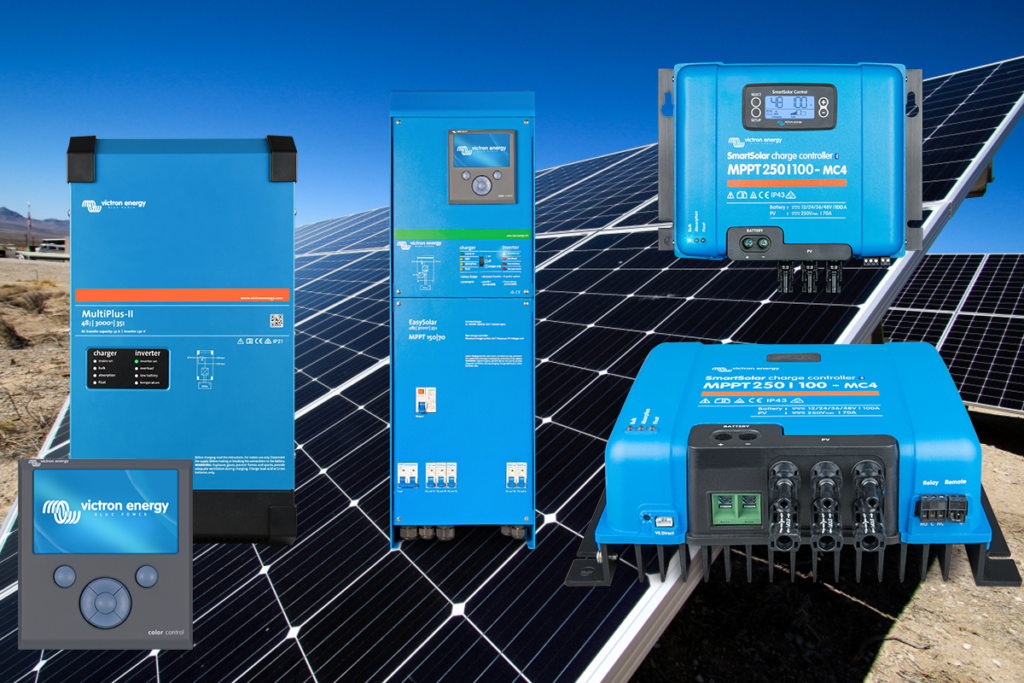Renewable Energy Entrepreneurship:10 Steps to Launching Your Solar Business Successfully
Renewable Energy Entrepreneurship holds the key to unlocking a sustainable and eco-friendly future.

In the dynamic landscape of the energy sector, venturing into the solar business presents a unique opportunity for entrepreneurs to make a positive impact.
As the world grapples with the consequences of climate change, there’s an increasing demand for clean energy solutions.
Embracing renewable energy entrepreneurship allows individuals not only to build thriving businesses but also to contribute meaningfully to a greener planet.
One of the first steps in Renewable Energy Entrepreneurship is to equip oneself with a profound understanding of solar energy and its vast potential.
Solar technology has evolved significantly, and entrepreneurs must stay abreast of the latest innovations, market trends, and regulatory frameworks.
This knowledge forms the foundation for informed decision-making and strategic planning in the competitive landscape of the solar industry.
Market research is a crucial aspect of Renewable Energy Entrepreneurship.
Understanding the local and global market dynamics, identifying target audiences, and analyzing the competitive landscape are integral components of a successful solar business launch.

Entrepreneurs need to be adept at navigating the market, recognizing opportunities, and tailoring their approach to meet the unique needs of their communities.
This approach not only ensures business viability but also contributes to the widespread adoption of solar energy solutions.
In the realm of Renewable Energy Entrepreneurship, developing a comprehensive business plan is paramount.
This plan should articulate the entrepreneur’s mission, vision, and goals, emphasizing the role of the solar business in advancing sustainability.
A well-structured business plan serves as a roadmap, guiding the entrepreneur through the intricacies of market entry, operational challenges, and financial projections.
Investors and stakeholders are more likely to support ventures with a clear and compelling vision for the future of renewable energy.
Renewable Energy Entrepreneurship is not just about profit; it’s about making a positive environmental impact.
Obtaining relevant certifications, such as the NABCEP certification, showcases a commitment to quality and safety standards.
This not only builds trust with customers but also positions the entrepreneur as a responsible player in the renewable energy sector.
As the industry continues to grow, certifications become valuable assets, distinguishing a solar business in a competitive market.
When delving into Renewable Energy Entrepreneurship, choosing the right business model is pivotal.

Whether focusing on residential installations, commercial projects, manufacturing, or maintenance services, entrepreneurs must align their business model with their strengths and market demands.
Each niche has its unique challenges and opportunities, and a thoughtful selection ensures a more focused and successful venture in the diverse landscape of solar business.
In the realm of marketing for Renewable Energy Entrepreneurship, an online presence is paramount.
A professional website, coupled with a robust digital marketing strategy, increases visibility and attracts environmentally conscious customers.
Social media platforms, content marketing, and search engine optimization are powerful tools to reach audiences interested in embracing solar solutions.
Entrepreneurs must leverage these channels effectively to communicate their commitment to sustainable practices and the positive impact their solar business can have on the planet.
Renewable Energy Entrepreneurship is a journey of innovation, responsibility, and contribution to a cleaner, greener future.
By combining in-depth knowledge, strategic planning, and a commitment to sustainability, entrepreneurs can not only build successful solar businesses but also play a vital role in shaping the future of renewable energy.
As the world turns towards cleaner alternatives, those venturing into Renewable Energy Entrepreneurship are not just pioneers; they are catalysts for positive change on a global scale.

10 Steps to Starting a Solar Business
In recent years, the demand for clean and sustainable energy solutions has been on the rise, and starting a solar business can be a lucrative venture.
As the world shifts towards renewable energy sources, the solar industry presents exciting opportunities for entrepreneurs.
If you’re considering entering this dynamic field, here are 10 essential steps to guide you through the process of starting a solar business.
- Educate Yourself:
Before diving into the solar business, it’s crucial to gain a comprehensive understanding of solar energy, technology, and the industry as a whole. Stay updated on the latest advancements, regulations, and market trends.
Familiarize yourself with the different types of solar technologies, such as photovoltaic (PV) and solar thermal systems.

Evaluate the market potential for solar products and services in your target area. Identify your target audience, assess competition, and understand local regulations and incentives related to solar energy.
A thorough market analysis will help you tailor your business strategy to meet the specific needs of your region.
Create a detailed business plan outlining your company’s mission, vision, and goals. Define your target market, marketing strategy, and financial projections.
A well-structured business plan is essential for securing financing and providing a roadmap for your business’s growth.
- Legal and Regulatory Compliance:
Navigate the legal landscape by registering your business, obtaining necessary permits, and complying with local, state, and federal regulations.
Research licensing requirements for solar businesses in your area and ensure that your operations adhere to environmental standards.
- Skills and Certification:
Acquire the necessary skills and certifications to operate in the solar industry. Consider obtaining certifications such as NABCEP (North American Board of Certified Energy Practitioners) to enhance your credibility and demonstrate your commitment to quality and safety.

- Build Industry Partnerships:
Establish relationships with suppliers, manufacturers, and other key players in the solar industry.
Developing strong partnerships will not only ensure a steady supply chain but also provide valuable insights and support as you navigate the complexities of the market.
- Choose a Business Model:
Decide on the specific niche or segment of the solar industry you want to focus on.
Whether it’s residential solar installations, commercial projects, solar panel manufacturing, or solar maintenance services, choosing a clear business model will help you tailor your efforts and resources more effectively.
- Invest in Marketing:
Create a strong online presence through a professional website and leverage digital marketing strategies to reach potential customers.
Utilize social media, content marketing, and search engine optimization to increase visibility and attract clients interested in solar solutions.
In a competitive market, delivering high-quality products and services is essential for building a positive reputation.

Invest in training your team, stay updated on the latest technologies, and prioritize customer satisfaction to ensure the success and longevity of your solar business.
- Seek Financing:
Determine the financial requirements for your solar business and explore funding options.
This may include loans, grants, or investors interested in supporting renewable energy initiatives.
A solid business plan and a clear demonstration of the potential for profitability will be crucial when seeking financing.
Starting a solar business requires a combination of knowledge, strategic planning, and a commitment to sustainability.
By following these 10 steps, you can lay the foundation for a successful venture in the rapidly growing solar industry.
As you embark on this journey, stay informed, adaptable, and passionate about contributing to a cleaner and more sustainable future through the power of solar energy.
10 best solar innovation products Good for a Startup

- Solar Panels with Advanced Efficiency: Investing in solar panels with high efficiency is crucial for maximizing energy production. Look for innovative panels that incorporate advanced technologies such as bifacial cells, PERC (Passivated Emitter Rear Cell) technology, or multi-junction solar cells.
- Energy Storage Solutions: Incorporating energy storage solutions like solar batteries allows businesses to store excess energy generated during peak sunlight hours for use during periods of low or no sunlight. This enhances the reliability of solar energy systems and makes them more versatile.
- Smart Inverters: Smart inverters play a vital role in converting DC power from solar panels into usable AC power for homes or businesses. Invest in inverters equipped with advanced features such as remote monitoring, grid connectivity, and optimization algorithms for improved energy efficiency.
- Solar Tracking Systems: Solar tracking systems optimize energy capture by adjusting the orientation of solar panels throughout the day to follow the sun’s path. These systems increase energy yield, making them a valuable innovation for solar businesses looking to maximize output.
- Solar Shingles: For businesses involved in residential solar installations, solar shingles provide an aesthetically pleasing alternative to traditional solar panels. These roofing materials seamlessly integrate solar technology, offering a dual-purpose solution for homeowners.
- Flexible Solar Panels: Flexible solar panels, also known as solar films or thin-film solar, are lightweight and versatile. They can be integrated into unconventional surfaces, such as curved structures or clothing, providing innovative opportunities for solar energy applications.
- Solar-Powered Water Purification Systems: Solar innovations extend beyond electricity generation. Consider incorporating solar-powered water purification systems that utilize energy from the sun to provide clean and sustainable drinking water solutions, especially in areas with limited access to power.
- Solar-Powered HVAC Systems: Solar-powered heating, ventilation, and air conditioning (HVAC) systems are eco-friendly alternatives that reduce dependency on conventional energy sources. These systems use solar energy to power the heating and cooling processes, contributing to overall energy efficiency.
- Solar-Powered EV Charging Stations: As electric vehicles become more prevalent, solar-powered EV charging stations offer a sustainable solution. Integrating these stations into your solar business portfolio can cater to the growing demand for clean transportation options.
- AI-Powered Energy Management Systems: Implementing artificial intelligence (AI) in energy management systems can optimize the performance of solar installations. These systems use data analytics to predict energy production, consumption patterns, and equipment health, leading to better operational efficiency and maintenance planning.

By incorporating these innovative solar products into your business model, you can not only stay competitive in the market but also position your solar business as a leader in embracing cutting-edge technologies for a sustainable future.
CONCLUSION
In the ever-evolving narrative of our planet’s environmental health, Renewable Energy Entrepreneurship stands as a beacon of hope, a catalyst for change, and a testament to human ingenuity.
The journey into launching a solar business is not merely a pursuit of profits; it’s a commitment to a future where sustainability takes center stage, and clean energy becomes the lifeblood of our societies.
As we navigate the intricacies of this transformative venture, we find that Renewable Energy Entrepreneurship is not just a business endeavor; it’s a profound responsibility.
It’s a commitment to harnessing the power of the sun, our most abundant and sustainable energy source, to drive positive change.
It’s about building a legacy that extends beyond balance sheets and profit margins—a legacy that echoes in the reduced carbon footprints, the cleaner air, and the countless lives touched by the brilliance of solar energy.

In the tapestry of Renewable Energy Entrepreneurship, we weave together the threads of innovation, resilience, and purpose.
The entrepreneur stepping into the realm of solar business is not merely a stakeholder; they are a steward of the planet.
They are the architects of a tomorrow where energy is harnessed responsibly, where businesses thrive in harmony with nature, and where the relentless pursuit of progress coexists seamlessly with environmental conservation.
This comprehensive guide has illuminated the path, providing insights into the intricacies of launching a solar business successfully.
From understanding the nuances of solar technology to navigating the regulatory landscape, from cultivating strategic partnerships to embracing innovative marketing approaches, every step is a testament to the commitment required for Renewable Energy Entrepreneurship.
The entrepreneur embarking on this journey is not just a captain of industry; they are a visionary, steering towards a horizon where economic prosperity intertwines with environmental stewardship.
As we conclude this exploration into the world of Renewable Energy Entrepreneurship, let us recognize the power vested in each entrepreneur to shape the narrative of our energy future.

It’s a narrative that speaks of resilience in the face of climate challenges, a narrative that champions the role of businesses in driving positive change.
The solar business is not just a venture; it’s a movement towards a world where sustainable practices are not optional but imperative.
In the heart of Renewable Energy Entrepreneurship, lies a commitment to generations yet unborn—a commitment to bequeath a world where clean energy is not a choice but a way of life.
So, to the entrepreneur contemplating the solar business journey, remember this: you are not just launching a company; you are pioneering a future where the sun powers not only our homes and businesses but also our collective aspirations for a brighter, cleaner, and more sustainable world.
This is not just a guide; it’s an invitation to be part of a transformative force that shapes the very fabric of our planet’s tomorrow.





Leave a Reply